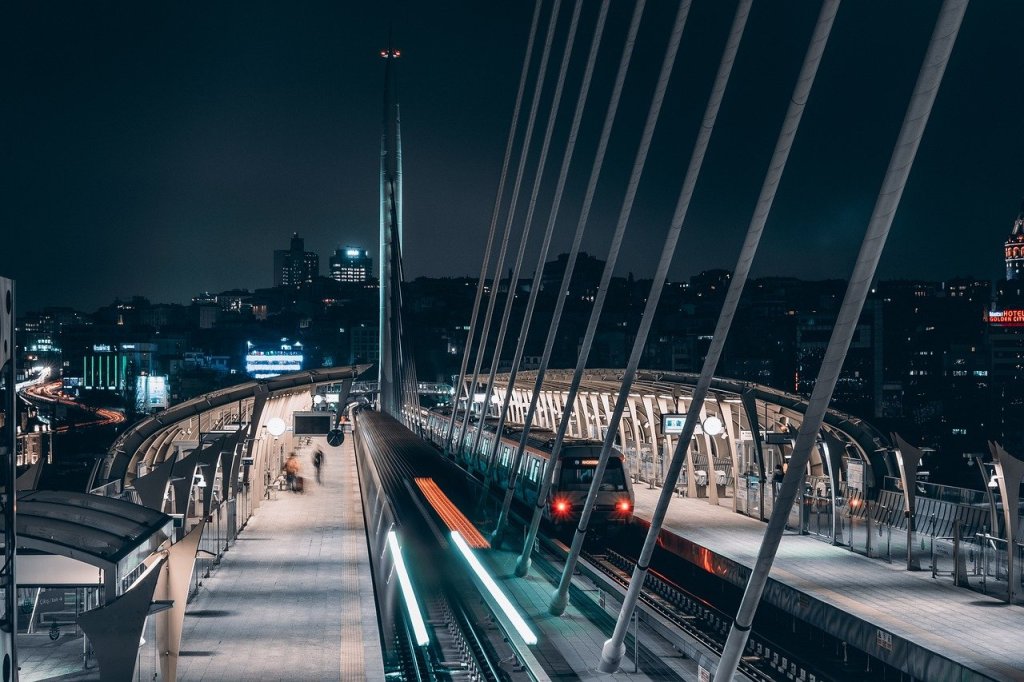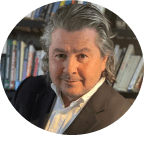
We are going through challenging times. Armed conflicts, civilian casualties, bombing of hospitals, redrawing of international borders, risk of nuclear attacks, deepening economic crisis, global warming, and the rise of authoritarian regimes give rise to great concern. Unfortunately, there are no promising signs that things will get better. It would have been ideal if human race, who acquired modern identity 50,000 years ago, had evolved genetically at a pace suitable for intergalactic travel now. Instead of mourning innocent lives lost in wars, or facing natural disasters due to reckless urbanization, we could have been living in a peaceful and sustainable world, avoiding the cloud of carbon emissions we created. If only the libraries of Al-Andalus and Alexandria hadn’t been burned, and valuable minds producing science, art, and philosophy coexisted, we might have lived in a better world.
Turkey not only stands at the crossroads of the earliest civilizations but is also situated in the midst of alarming developments with intensified violence. Keeping the country and its people secure and ensuring peace, security, and prosperity should be the top priority of the country’s leaders. Many civilizations have come and gone in this region long before Turks set foot in Anatolia in 1071. These lands hosted numerous civilizations like Sumer, Assyria, Hittite, Greek, Lydia, Celtic, Persian, Roman, Byzantine, Seljuk, Safavid, Mongol, and Ottoman. It has embraced hundreds of languages and dialects. Furthermore, these are the lands where Christianity was born and grew.
Unfortunately, during the Renaissance when geniuses like Leonardo da Vinci, Raphael, and Michelangelo lived through,in the Ottoman Empire many forms of art was considered as sin, and sculptures were regarded as idols. While thinkers like Francis Bacon, Thomas Hobbes, John Locke, René Descartes, and Spinoza made efforts to perceive the world and establish rules for coexistence, in the lands of Ottoman Empire philosophers were declared as heretics and philosophy wasbanned. Education in the Ottoman Empire was limited to religious teachings. Thus, the Ottoman was lagging behind the progress of European civilization which had experienced Renaissance and Reformation.
Mustafa Kemal, with a vision far ahead of his time, aimed to break this vicious cycle by introducing the enlightenment in Turkey after the establishment of the Republic in 1923. Turkey entered its second century in 2023. Yet it remains far from being a peaceful and prosper country.
Turkey has one of the world’s largest armed forces. Its rapidly improving defense industry is stronger than ever. However, the country has not solved its national security issues. Externally, Turkey has been involved in CENTO, the Baghdad Pact, NATO, OECD, the Council of Europe, the EU, and Black Sea Cooperation, but often in a half-hearted manner. Furthermore, Turkey lacks a solid position in relations with the US, the EU, China, and Russia. However, as the new world order is being shaped, Turkey cannot afford to miss the opportunity during this critical period.
Economically, the country’s economy has frequently facing bottlenecks because a sustainable, competitive, technology-based, and productive system hasn’t been established. To explain Turkish economic dependence upon the US analysts often use the following phrase: When Washington sneezes, we catch pneumonia in Turkey. Furthermore, the country is drained from debt payments. The external debt is $476 billion, which is 46.5% of the GDP. External debt interest exceeds the country’s total investments. Entrepreneurs’ energy and motivation are drained due to expensive inputs, unskilled labor, heavy taxes, technological poverty, import dependency, innovation patent scarcity, and the shackles of bribery and corruption. Under these circumstances investors tend to spare themselves from production, go for imports, and rise through rent-seeking as if that’s the path to success.
In the field of technology, Turkey’s position in the technology league is not commendable. Over 75% of country’s energy is imported. The massive import bill restrains the country’s competitiveness. The target for decarbonization is set for 2053; who knows what will happen by then.
The education system has become a puzzle, failing to nurture the new generation that will instill hope for the future. 208 universities annually produce hundreds of thousands of “semi-intellectual” graduates, securing the lowest ranks in the world league. Bright young individuals are eager to leave the country for better prospects abroad. White-collar professionals have been migrating worldwide to secure a better future for themselves and their families.
A quick look around with a discerning eye shows one that how much Turkey is lag behind in art, culture, architecture, and aesthetics. Furthermore, the gap with the democratic countries is widening. Turkey is listed as one of the most anti-democratic countries, ranking below even countries like Djibouti and Rwanda.
Despite the above mentioned negative outlook, it must be acknowledged that there is a tremendous dynamism in this country. If the energy, intelligence, and enthusiasm of Turkey could be channeled into the right directions, Turkey will strengthen its place in the global governance of the 21st century under a comprehensive vision for the future. To be able to achieve this vision Turkey must initiate its unique reform and renaissance without delay.

Mehmet Öğütçü
Chairman, Global Resources Partners, UK, and The London Energy Club. Former diplomat, prime minister adviser, IEA and OECD senior executive, director and independent board member at British Gas, Genel Energy, Invensys, Şişecam, Yaşar Holding companies. Chairman of the Middle East Institute, Washington DC, Advisory Board. He can be contacted at [email protected]
To cite this work: Mehmet Öğütçü, “Necessity of Reform and Renaissance for Turkey”, Panorama, Online, 26 November 2023, https://www.uikpanorama.com/blog/2023/11/26/mo-3/
Copyright@UIKPanorama All on-line and print rights reserved. Opinions expressed in works published by the Panorama belongs to the authors alone unless otherwise stated, and do not imply endorsement by the IRCT, Global Academy, or the Editors/Editorial Board of Panorama.


